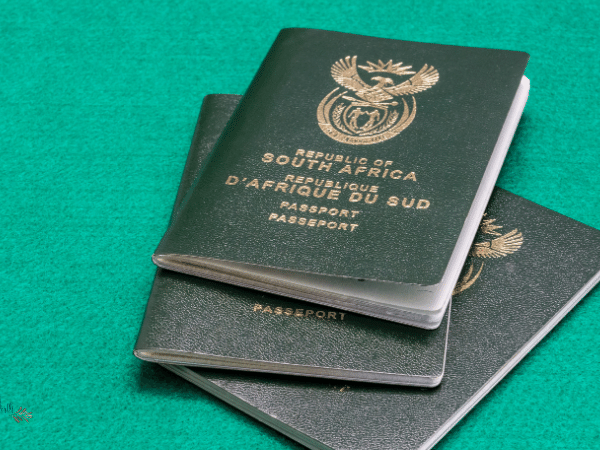Culture shock isn’t something that everyone expects to experience when they emigrate to another country. But many of us do indeed go through stages of culture shock, whether we recognise it or not. So I’ve put together some useful tips on how to deal with culture shock when you emigrate.
What is Culture Shock?
Culture shock is a form of anxiety people feel whenever placed in a new environment, especially when travelling or relocating to a new country, where many things can be different and unfamiliar.
The causes of culture shock are numerous and vary with each person and their personal circumstances. You may be nervous as to whether you’ll find a suitable job to support your family, and start doubting yourself whether you made the right move.
You may feel disoriented in your new surroundings, confused with people’s attitudes, mannerisms and cultures, afraid of learning a new language, or unaccustomed to new rules, laws and a change of routine and lifestyle.
Even small things, like not finding certain foods or ingredients you were accustomed to back home, may add to the level of stress, known as culture shock.
When all these emotions are compounded, they can leave you feeling tense, depressed and overwhelmed. Culture shock is however, completely normal and to be expected as it will affect almost everyone in one way or another.
The good news is that there are ways of dealing and minimising the effects of culture shock when they happen to you.
The main thing to remember, before you even arrive to your new country, is to keep an open mind and try to recognise the symptoms and the different stages of culture shock. How long you take to work through these stages and deal with culture shock, depends entirely on you.
The 4 Stages of Culture Shock
Stage 1 – Honeymoon
At first, everything you do or see, will seem exciting, because you’re only looking for the pretty and pleasing things in your new home.
It will feel as if you’re still on holiday. Visiting and living are, however, very different and the honeymoon phase may not last too long.
Stage 2 – Frustration
Soon, realities of life will start to creep in, and you may begin to become frustrated and irritated at all the new, and seemingly unpleasant, things you now have to do. You may find people or systems are not as friendly or efficient or the climate is different to what you were accustomed.
You may start to feel like a stranger lost in a foreign land. No need to panic and head for home…this phase is temporary too, and will eventually pass.
Stage 3 – Adjustment
As you become familiar with your new routines and lifestyle, you finally begin to feel that you “fit in” and are successfully adjusting to life’s differences in your new country.
Slowly, your level of anxiety may subside and less issues seem to bother you as much. Hang in, you’re almost there.
Stage 4 – Acceptance
This is the final stage. Once you realise how well you have managed so far, you begin to feel more secure and confident that you can cope with whatever is thrown at you.
You have accepted the challenges of your new home and you begin to feel at home again.
This sense of belonging allows you to have a more positive outlook, and you can finally start enjoying the new lifestyle your new country has to offer.
How To Deal With Culture Shock – 10 Essential Tips
Tip #1 – Admit There Are Cultural Differences
No matter where you go, often even in the same country, there will always be cultural differences. You cannot escape that.
It would be most helpful to familiarise yourself with the local culture and learn as much about the country as possible before you even arrive.
Tip #2 – Accept The Rules In Your New Country
Learning and accepting the rules (written, unwritten and unspoken) in your new country, will go a long way to help you to understand the local people’s behaviour and mannerisms.
This allows you to interact more freely with them, helping you to adapt and deal with culture shock in a more effective manner.
Tip #3 – Get involved In Your Local Community
One sure way of minimising the effects of culture shock is to become involved in your local community.
This includes the seemingly simple (yet easier said than done!) act of making friends. Invite your neighbours round, join a sports club or organisation, volunteer for a charity project, do something for the community and become a part of it. Don’t remain an outsider or wait to be invited along.
Tip #4 – Practise Self Care
While you’re feeling anxious and overwhelmed by the effects of culture shock, it’s easy to forget to take care of yourself. Avoid excessive eating and drinking to relieve the stress and get as much exercise and rest as you can.
Spend time outside enjoying the wonderful sights and attractions, which drew you here in the first place. Take a walk around your neighbourhood, a national park, or spend some time soaking up the sun on the beach. Nothing like fresh air and glorious sunshine to heal the body and sooth the soul.
Tip #5 – Realise It Will Take Time To Adjust
Adjusting to a new way of life in another country is no easy feat for anyone. Practice patience and allow yourself enough time to process the adjustment, and expect to have good and bad days along the way.
How long that may be, will depend on you, your circumstances, and how different your host country is to where you came from originally.
Tip #6 – Explore Your New Home
Don’t stop being a tourist in your new country. You now have all the time in the world to explore the country’s popular sights and side streets of your city, discovering the hidden gems, easily missed by the tourist masses.
Look for that special restaurant, coffee or pastry shop, or a unique market that may be just around the corner. Research what lies around you and don’t be afraid to venture out into the country or along the coast to truly get a sense of what your new home has in store for you.
Tip #7 – Don’t Compare Your Journey To Others
A big mistake many immigrants often make, is to compare their journey to that of others. You will meet with others from the same country as yours, who may be in a better or worse situation than you. Don’t compare yourself with them. Rather learn about their journeys and use that experience to your benefit.
Tip #8 – Make An Effort To Make Friends
Make every effort to make friends at every opportunity. It doesn’t take much, except just being nice. A smile given will result in a smile received…every time. Invite people to visit or join you, and you’re bound to receive an invitation in return.
And never, ever turn down an invitation…ever. If you do, it may just be the one where you were going to meet your new best friend!
Don’t isolate yourself, instead be with people and talk about your feelings and apprehensions, particularly with people from the same country as you. You may find you’re not the first or the last one to experience these feelings.
Tip #9 – Don’t Idealise Your Life Where You Came From
If there is one thing that really gets up the noses of the locals anywhere in the world, is for immigrants to be continually idealising the countries that they came from. Please don’t do that!
It’s okay to share your experiences and tell people about your country and your culture, but take time to also embrace your new country and show appreciation for the lifestyle and opportunities it has given you. There has to be a healthy balance between the two.
Tip #10 – Remember Why You Made The Move
Of course your own country will always be in your heart, and there will be times when you may want to go back. But it’s also good to remember that your country may not exactly have been a bed of roses and that should make you remember why you made the move in the first place.
I hope you’ve found my tips on how to deal with culture shock useful. The key thing to remember is that you are certainly not the first person to experience culture shock and you won’t be the last either!
Do you have any more tips on how to deal with culture shock when you emigrate? I’d love to hear them so leave your tips on dealing with culture shock in the comments below.
For more tips from me when it comes to the emotional side of emigrating, read my 12 challenges you’ll face when you move to Australia (and how to overcome them).






No Comments